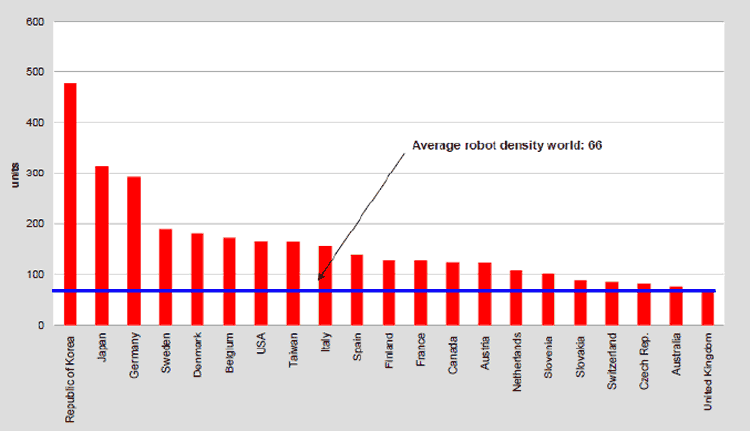According to a report from Bloomberg, the growing array of options available for each car - from types of trim to cooled or heated cup holders - are just too much for the traditional types of robots used in the auto sector to handle, and Mercedes has been fading them out as a result.
Supply Chain Digest Says... |
 |
| hina embarked on a historically unparalleled game of catch-up aimed at changing the status quo, and already today it is the world's largest sales and growth market for industrial robots. |
 |
What do you say? |
| Click here to send us your comments |
 |
| Click here to see reader feedback |
|
|
"Robots can't deal with the degree of individualization and the many variants that we have today," Markus Schaefer, head of manufacturing at Mercedes. "We're saving money and safeguarding our future by employing more people."
With manufacturing focused now more focused around a skilled crew of workers, Mercedes can shift a production line in a weekend instead of the weeks needed in the past to reprogram robots and shift assembly patterns, Schaefer said, which resulted in significant downtime.
But that doesn't mean Mercedes is moving away from robots entirely. But rather than the usually large, fixed types of robots used in the past, the robots used on the line will be smaller and more flexible and operate in conjunction with human workers rather than set off behind safety fences. Mercedes calls equipping workers with an array of little machines "robot farming."
The term "collaborative robots" has also been used to categorize this new generation of machine that can work side by side with humans in a manufacturing plant or distribution center, such as the "Baxter" robot introduced a few years ago by Boston-based Rethink Robotics.
Bloomberg says that Mercedes' German rivals BMW and Volkswagen's Audi unit are also testing lightweight, sensor-equipped robots safe enough to work alongside people. The goal: be able to react faster on the assembly line to increasingly rapid changes to auto designs, options, and market demand by eliminating the programming time required to change the capabilities of traditional robots.
"We're moving away from trying to maximize automation with people taking a bigger part in industrial processes again," said Schaefer. "We need to be flexible."
But that hardly means productivity is taking a back seat to flexibility. Overall, Mercedes has been working on a goal of reducing the hours needed to produce a car to 30 from 61 in 2005.
Deployment of Industrial Robots Expected to Grow Substantially
Whatever changes are happening at German automakers, there will be substantial growth in the deployment of industrial robots, according to new analysis from the industry's trade group the International Federation of Robotics.
(Article Continued Below)
|
CATEGORY SPONSOR: SOFTEON |
|
|
| |
|
|
It says continued double digit growth will push deployments of industrial robots in 2018 to around 1.3 million units. In 2014, the number was 171,000 or so.
Driving that growth, the IRG says, will be many nations seeing their level of robot "density" - the number of robots per manufacturing worker - increasing substantially, to more like world leader South Korea, which as shown in the chart below has nearly 500 robots per 10,000 manufacturing worker, versus 164 in the US (2014 data).
Robot Density by Country (Number of Robots per 10,000 Manufacturing Workers)

Source: IRF
Huge growth in robotics is expected from China, which currently is in 28th place in terms of density, with about 40 robots per 10,000 workers, not even enough to make the IRF chart of the top 21.
"However, about five years ago, China embarked on a historically unparalleled game of catch-up aimed at changing the status quo, and already today it is the world's largest sales and growth market for industrial robots," the IRF says.
As we reported last year, one Chinese province even has an official program to "replace humans with robots" in factories in its jurisdiction. (See Will China be Ground Zero for Social Tension over Growing Use of Factory Robots?)
Our take: While the humans win a round at Mercedes-Benz, in the big picture the robots still have the big edge.
Any reaction to Mercedes replacing robots with humans? Will the need for flexibility drive other manufacturers to do the same - or are the robots taking over? Let us know your thoughts at the Feedback section below.
Your Comments/Feedback
|
|
Jason Morin
Director of Continuous Improvement, XPO Logistics |
Posted on: Mar, 16 2016 |
|
| Good for you, Mercedes. Robots do play a role but they also have another severe limitation that wasn't mentioned. They will never provide an idea to improve a process. They never make a process better...they'll just maintain the status quo. |
|
|